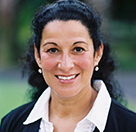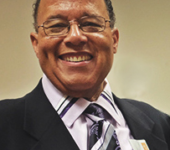• by Bradley Scott, Ph.D., and Rosana G. Rodríguez, Ph.D. • IDRA Newsletter • August 2006 • 

As the nation challenges itself to reform public schools, increase teacher quality, engage parents, strengthen core content, and raise student achievement, we are still compelled to ask ourselves to what extent we have fulfilled the promise of Brown vs. Board of Education and Mendez vs. Westminster.
It was more than 50 years ago that the U.S. Supreme Court ruled, in Brown vs. Board of Education, that sending children to separate schools solely on the basis of race was unconstitutional. Seven years earlier, the ninth Circuit Court of Appeals similarly ruled, in the Mendez vs. Westminster case, that Mexican American children could not be denied a quality education because they were Mexican American.
Both of these cases suggested a promise for access to education that would be equitable, fair and free from discrimination. Such an education would properly prepare learners for competent, responsible citizenship as well as teach the skills and competencies to build and sustain a productive professional career and life.
The question still remains: Has the promise of quality education that is fair, equitable and free from discrimination been realized for African American students and Latino students? More importantly, what must be done to make good on the promise?
Dr. María Robledo Montecel, executive director of IDRA, asked the question, “How can we create a future in which the color of a child’s skin, the language a child speaks, and the side of town that child comes from are no longer barriers to a great education and a good life?”
As we attempt to answer this question, we have to accept that public education has diverging realities. On the one hand, there have been some reform efforts that improved education for many children across the nation. On the other hand, many disparities continue to exist that limit individual opportunity, weaken the potential of the nation’s economy, and weaken the social and democratic health of the nation.
It was with these thoughts in mind that IDRA undertook an effort to create local responses to answer the question of a promise fulfilled or unfulfilled. With funding from the Annie E. Casey Foundation, IDRA convened a cross-sector, multi-racial group of educators, community members and parents to participate in dialogues in Dallas, Houston and Tyler, Texas. The dialogues focused on creating blueprints for action for improved educational opportunities for all children, and especially minority children.
These cities are uniquely suited for such an effort as they represent a microcosm of the changing demographics throughout the United States and, as in the case of Tyler, represent areas of Latino hyper-growth in regions that are historically African American and White.
During these Blueprints for Action meetings, participants examined local education and demographic information. They were challenged to create ways for education and community leaders to identify key educational issues within their community and to identify blueprints for action outlining possibilities for realizing the spirit of Brown and Mendez.
The blueprint dialogues produced three important results:
-
There were new or strengthened alliances among groups, with local leaders committed to continuing the work through additional local dialogues.
-
Participants expressed a need for a process that could be used to guide the continued dialogues that also would move words to action.
-
With the information generated in the dialogues in the three communities, IDRA created a synthesis of ideas that served as the basis for a new publication, A Community Action Guide – Seven Actions to Fulfill the Promise of Brown and Mendez.
The guide contains two major sections. The first section presents the seven critical actions local communities must take to fulfill the promise of Brown and Mendez.
The seven actions are:
- Protect civil rights as the foundation of a viable healthy democracy, framed in the Declaration of Independence, guaranteed in the U.S. Constitution and codified by civil rights legislation.
- Engage community to protect the civil rights of all children by holding states and schools accountable for excellence and equity in education.
- Demand fair funding so that every child receives a quality education through fair and equitable distribution of resources.
- Hold schools accountable for high achievement of all schools through fair and equitable practices that ensure their success.
- Strengthen school holding power from pre-kindergarten to completion, ensuring that every student is valued, graduates from high school with a diploma, and is prepared for college, work and civic engagement.
- Require teaching quality so that every student benefits from teachers who are certified, teach in their content area(s), and meet or exceed high standards of excellence.
- Ensure access and inclusion so that every child, regardless of race, color, national origin, home language, gender, economic circumstance or disability, attends good schools, has opportunities to learn and has appropriate support to reach his or her highest potential.
The second section presents an action planning process that navigates local participants through vision building, focused planning, local environmental scanning and constructing the actual blueprint for local action. This section provides a detailed planning guide that local communities can use to identify issues, plan resolution strategies and construct an action agenda for change.
It also provides the user with a community assessment instrument that, when used as a foundation for discussion and action, generates a clear direction local stakeholders can embrace to bring about real action to fulfill the promise of Brown and Mendez.
There is probably nothing more important in this era of globalization of politics, economies and cultures than preparing all of our children for success in every aspect of their lives. This preparation starts at the smallest community level outside the home – which is the school.
To deny children this important and crucial level of preparation is short-sighted and detrimental to the common good of the local, state and national well being. For these reasons and more, community stakeholders need to dialogue, plan and act.
Resources
The community action guide is available free online.
Bradley Scott, Ph.D., is the director of the IDRA South Central Collaborative for Equity. Rosana Rodríguez, Ph.D., is director of the IDRA Division of Community and Public Engagement. Comments and questions may be directed to him via e-mail at: feedback@idra.org
[©2006, IDRA. This article originally appeared in the August 2006 IDRA Newsletter by the Intercultural Development Research Association. Permission to reproduce this article is granted provided the article is reprinted in its entirety and proper credit is given to IDRA and the author.]



